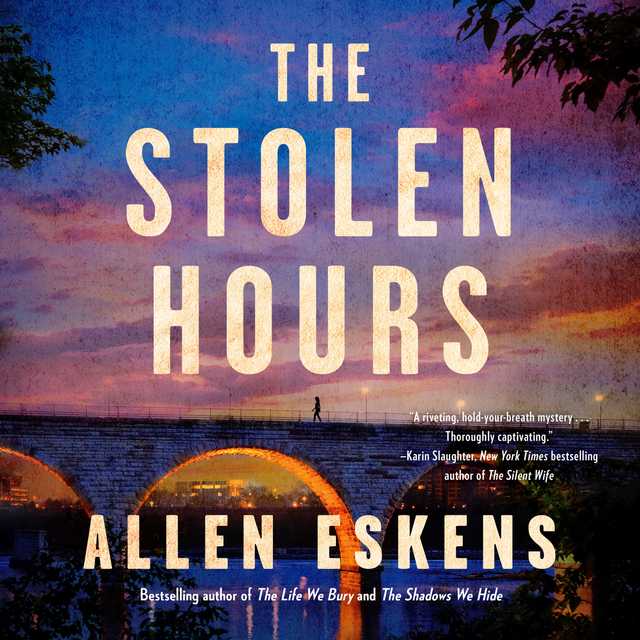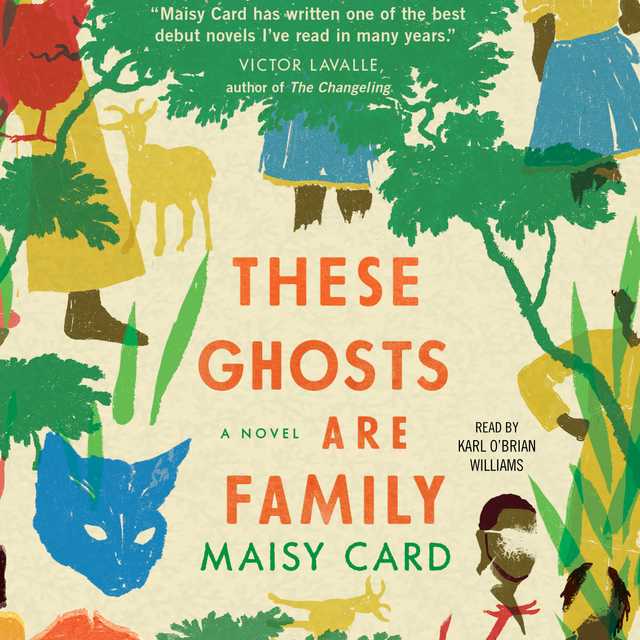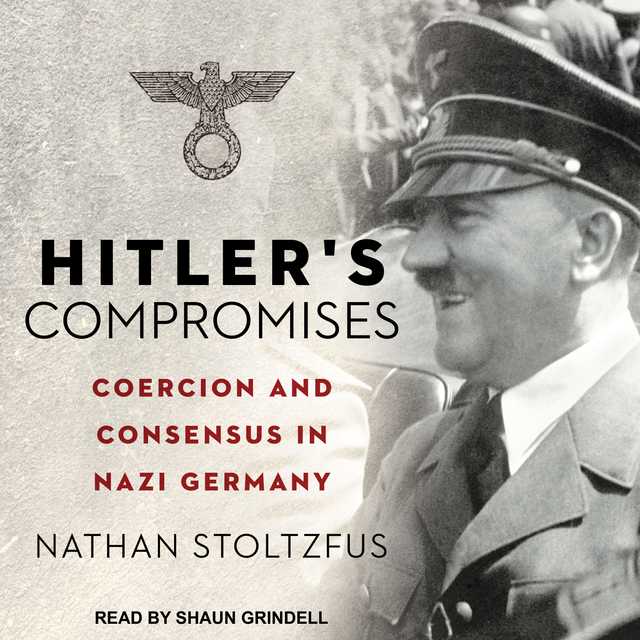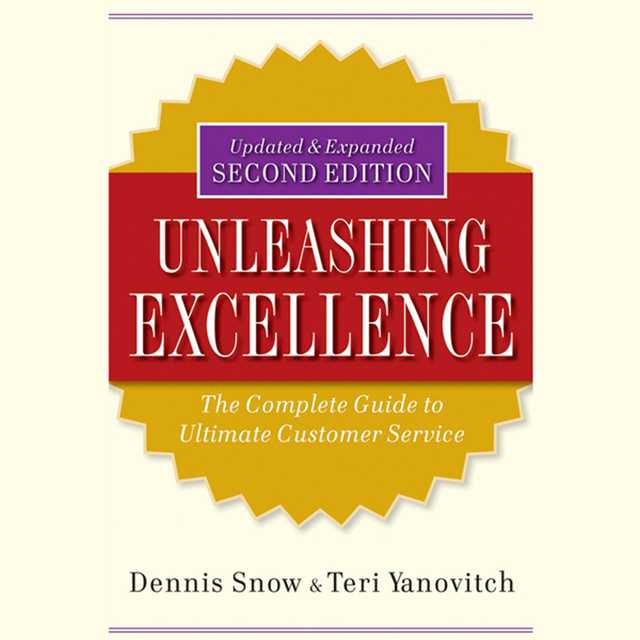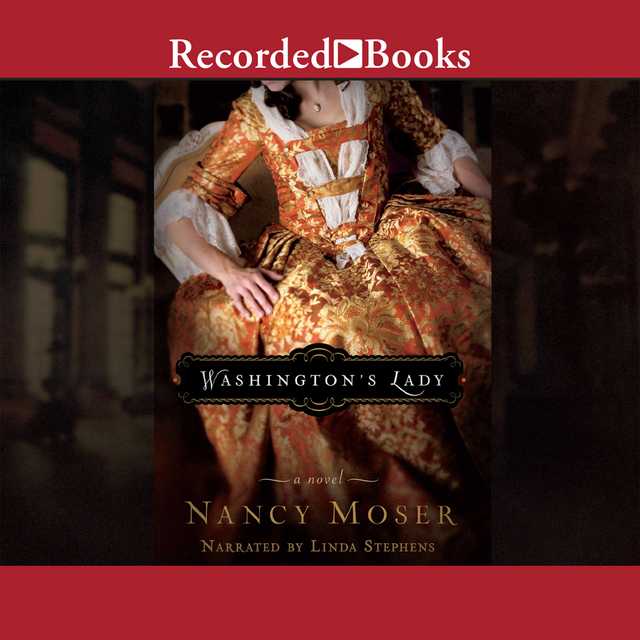Ham On Rye Audiobook Summary
In what is widely hailed as the best of his many novels, Charles Bukowski details the long, lonely years of his own hardscrabble youth in the raw voice of alter ego Henry Chinaski. From a harrowingly cheerless childhood in Germany through acne-riddled high school years and his adolescent discoveries of alcohol, women, and the Los Angeles Public Library’s collection of D. H. Lawrence, Ham on Rye offers a crude, brutal, and savagely funny portrait of an outcast’s coming-of-age during the desperate days of the Great Depression.
Other Top Audiobooks
Ham On Rye Audiobook Narrator
Christian Baskous is the narrator of Ham On Rye audiobook that was written by Charles Bukowski
Charles Bukowski is one of America’s best-known contemporary writers of poetry and prose and, many would claim, its most influential and imitated poet. He was born in 1920 in Andernach, Germany, to an American soldier father and a German mother, and brought to the United States at the age of two. He was raised in Los Angeles and lived there for over fifty years. He died in San Pedro, California, on March 9, 1994, at the age of seventy-three, shortly after completing his last novel, Pulp.
Abel Debritto, a former Fulbright scholar and current Marie Curie fellow, works in the digital humanities. He is the author of Charles Bukowski, King of the Underground, and the editor of the Bukowski collections On Writing, On Cats, and On Love.
About the Author(s) of Ham On Rye
Charles Bukowski is the author of Ham On Rye
More From the Same
- Author : Charles Bukowski
- On Cats
- Hollywood
- Hot Water Music
- Factotum
- Pulp
- Publisher : HarperAudio
- Abraham
- American Gods [TV Tie-In]
- Dead Ringer
- House of Sand and Fog
- Prey
Ham On Rye Full Details
| Narrator | Christian Baskous |
| Length | 7 hours 38 minutes |
| Author | Charles Bukowski |
| Publisher | HarperAudio |
| Release date | August 13, 2013 |
| ISBN | 9780062302908 |
Additional info
The publisher of the Ham On Rye is HarperAudio. The imprint is HarperAudio. It is supplied by HarperAudio. The ISBN-13 is 9780062302908.
Global Availability
This book is only available in the United States.
Goodreads Reviews
Glenn
February 10, 2017
I was sixteen, tan, blonde and good looking, catching waves on my yellow surfboard along with all the other surfers, handsome guys and beautiful gals, each and every day that summer. Little did I know this mini-heaven would quickly end and hell would begin in September. Why? My smooth-skinned tan face turned into an acne-filled mess. I suffered pimple by pimple for three years straight; many fat red pimples popping up every day. Oh, yeah, on my forehead, temples, cheeks, jaw, chin and nose. Unlike Charles Bukowski, my father never beat me as a kid but this was one thing I did have in common with Bukowski – being a teenager with a wicked case of acne. You can read all about his in this novel, Ham and Rye. Bukowski said, “The gods have really put a good shield over me man. I’ve been toughened up at the right time and the right place." Maybe this was part of my own toughening up, those three teenage years of enduring the red face fire of acne. Anyway, this is one of my connections with Bukowski, the king of the hill when it comes to American raw-boned, hard-boiled, tough-guy writers. And this novel of his years as a kid and teenager growing up in a house where he was continually beaten with a leather strap and receiving a torrent of emotional abuses, particularly at the hands of his callous, obsessive father, sets the stage for his alcoholic, hardscrabble adulthood, an adulthood where, other than drinking, his sole refuge from childhood memories of cruelty and his ongoing life on the down-and-out edge was sitting at his typewriter composing poetry and fiction. Ham on Rye. Every single sentence of this book is clear, vivid, sharp and direct, as if the words were bullets shot from a 22 caliber rifle. Here are just a few rounds: ““Words weren’t dull, words were things that could make your mind hum. If you read them and let yourself feel the magic, you could live without pain, with hope, no matter what happened to you.” Again, “I didn't like anybody in that school. I think they knew that. I think that's why they disliked me. I didn't like the way they walked or looked or talked, but I didn't like my mother or father either. I still had the feeling of being surrounded by white empty space. There was always a slight nausea in my stomach.” And, again. “The best thing about the bedroom was the bed. I liked to stay in bed for hours, even during the day with covers pulled up to my chin. It was good in there, nothing ever occurred in there, no people, nothing.”Ham on Rye. There are funny, belly-laughing scenes and scenes that will make you shudder, scenes that are tender and scenes filled with pain, but through it all, you will stick with Hank Chinaski aka Charles Bukowski, the ultimate tough-guy with the heart of a poet.
Vit
December 18, 2020
There is this eminent poem by Philip Larkin:“They fuck you up, your mum and dad. They may not mean to, but they do. They fill you with the faults they had and add some extra, just for you. But they were fucked up in their turn by fools in old-style hats and coats, who half the time were soppy-stern and half at one another's throats.”And everything in Ham on Rye develops under this scenario…So, that’s what they wanted: lies. Beautiful lies. That’s what they needed. People were fools. It was going to be easy for me.So the mournful bitterness of his childhood turned Henry Chinaski – that is Charles Bukowski – into an impenitent and cynical insurgent for life.I was like a turd that drew flies instead of like a flower that butterflies and bees desired.Ham on Rye is a merciless and graphic story – a real death sentence to smug philistines.At the age of twenty five most people were finished. A whole god-damned nation of assholes driving automobiles, eating, having babies, doing everything in the worst way possible, like voting for the presidential candidate who reminded them most of themselves.And there is always the one who wants to stay outside the herd…
Elyse
April 04, 2017
Update: $1.99 Kindle special today --- Its not for everyone -- but I thought it was fantastic! -- I own it -- and couldn't pull away from it the first time I read it. I'd suggest reading high and low reviews. Then trust your gut! Its 'based' on a true story --but written as a novel. "I had begun to dislike my father. He was always angry about something. Wherever we went he got into arguments with people. But he didn't appear to frighten most people; they just stared at him, calmly, and he became more furious. If we ate out, which was seldom, he always found something wrong with the food and sometimes refuse to pay. "There's flyshit in this whipped cream! What the hell kind of place is this?" "I'm sorry, sir, you needn't pay. Just leave.""I'll leave, all right! But I'll be back! I'll burn this god-damned place down! Yep, a real mensch of a father Henry Chinaski had. From a very young age -- Henry was spoon fed...."children are seen and not to be heard". ( one of the more 'kind' things that came out of his father's mouth). "Ham on Rye" alternates between being hilarious and horrendous. The beatings from his father were so awful -- that just saying "this kid survived physical abuse in his insane - crazy dysfunctional household is not enough...( I felt so angry)!!!His father was fucking brutal. The son-of-a-bitch deserved to be locked up for life. So? What was hilarious? Having acne and a gutless submissive mother--who can't stand up for Henry or herself isn't funny....but Henry's cynicism is often funny...It was very funny ( and cute), when Henry's little classmate, Lila Jane, ( a pretty girl), was proud of her clean pink panties - or blue ones--wanted to offer afternoon 'show and tell' for Henry's pleasure ....however...this was the depression era in America ---Henry wasn't allowed to fulfill his other desires ... so he was often sexually frustrated. ('not' so funny)...but human. The storytelling is wonderful ... It has everything...hitting us with a wide rage of emotions. Terrific coming of age book involving family, school, other kids, teachers, struggles to survive --barely escaping poverty...Henry's anger, aloneness, rebelliousness, soooo much sadness it hurts....but also something beautiful was developing: Henry's love for literature. His time spent in the library reading D.H. Lawrence, Sinclair Lewis...etc.... 'He did that'!!! Awwww and what a phenomenal writer Charles Bukowski is. I'm aware this book is loosely based on his life story...but I read it as fiction! The humanity in this book is extraordinary!!!!! I loved this book!!!!
Tristan
October 04, 2016
“At the age of 25 most people were finished. A whole god-damned nation of assholes driving automobiles, eating, having babies, doing everything in the worst way possible, like voting for the presidential candidate who reminded them most of themselves.”― Charles Bukowski, Ham on Rye Reading Charles Bukowski in public is a rather curious thing. Every once in a while, you come across some line or paragraph that is suffused with such a potent strand of open misanthropy it makes you chuckle. You think to yourself: "Surely this man is exaggerating here, merely going for comedic or shock effect?" What do you do? You decide to test his theory. You look up, take in your surroundings, watch ordinary humans go about their daily business and return to the passage you just read. Then it hits you. "Oh shucks, he's kind of right here. What does that say about me? Am I turning into a -toned down- Bukowski myself?" The ones who appreciate Bukowski have this experience often, I presume (also hope). Ham on Rye tells of the formative years (1920-45, roughly) of Bukowski's alter ego Henry Chinaski. In effect it is a loosely structured, even somewhat sloppy autobiography. Writing this book surely must have been emotionally punishing for Bukowski though. There is some serious, unresolved pain here, one supposes most of it not dealt with through any professional channels. Which would have been very unlike him, of course. Bukowski is the quintessential lone wolf, he dealt with his pain on his own terms. It wouldn't have given him the venom he needed, nor made him the figure he turned into. He goes into lengthy detail about his horrendous childhood. The domineering and abusive father, the spineless mother, and the soul-crushing social alienation he experienced as a child and young adult. Dreams are shattered, any sense of self-worth is ground into the earth at inception and even the tiniest hint of human warmth displayed is slowly being squeezed out. Unsurprisingly, the only route open to the character is direct revolt and nihilism. A rejection of all social conventions, common "wisdoms" and, above all, expectations. Yet for all the abject misery this is a supremely funny and vigorous book, if you know what to look for and share Bukowski's brand of humour. What really did surprise me though was that there is a tenderness here that I didn't find in either Post Office , Factotum or Women. At the ending of the book Bukowski seems to have found some degree of peace, some acceptance of his present state and past. Considering the tumultous, unpleasant life he had led up until then, this is one hell of a miracle. You can level many accusations against Bukowski, both as a writer and as a person. Sure, his writing is blunt, unrefined, perhaps too reliant on cheap gross out effects. He was an alcoholic, a misanthrope, even a thoroughly vile man when he got you in his crosshairs, but what he surely wasn't was unfeeling. Underneath all that bravado and machismo there beat the heart of a disappointed, yet true, romantic. Sadly, that person never had a chance to flourish. That is the source of Bukowski's greatness and tragedy both.
Arthur
October 14, 2015
"The first thing I remember is being under something."So begins this chronicle of the dirty old man's humble beginnings, his formative years, and the myriad oppressions he endured throughout his childhood, adolescence, and early adult life. In the most literal sense, this opening line represents baby Hank's first concrete memory, but it also sets the tone for the entire memoir to come. Dedicated to "all the fathers," Ham on Rye is both an indictment of and a tribute to every boss, bully, teacher, preacher, and dictator (foreign and domestic) to leave their mark on Chinaski's (Bukowski's) coming-of-age experience, charting his own way forward if only by counterexample."My father liked the slogan, 'Early to bed and early to rise, makes a man healthy, wealthy and wise.' But it hadn't done any of that for him. I decided that I might try to reverse the process."Each loosely connected chapter finds Hank at some point in his troubled youth, from his earliest memories of Andernach, Germany, to the first of many rented rooms in Los Angeles, California. Most of the intervening narrative deals with his abysmal home life throughout his equally trying school years. Whether at the hands of his father or his peers, young Hank takes his lickings and learns to give a licking or two in kind. He fights back, carves out his niche, thinks about girls and yearns for safe haven."R.O.T.C. was for the misfits. Like I said, it was either that or gym."As with any semi-autobiographical work, one has to wonder how much of it is true. Hank loses more fights than he wins, and his descriptions of failure should ring true for anyone accustomed to the experience. If Bukowski were to fictionalize anything here, you'd think that he might actually get laid somewhere in these 283 pages. Having said that, it's probably not much of a spoiler to reveal that he remains a virgin at least up until the bombing of Pearl Harbor, but anyone who's ever read Bukowski knows that he more than made up for this later in life (see Women, etc).There's got to be some scholarly work out there that unpacks the fact from fiction, but if one exists I am not aware. With Buk and his parents long since dead, I suppose I could call up Linda Lee to ask. Stupid idea, I know, but maybe I could convince her to adopt me the same way she adopted Hank all those years ago. Despite their famous squabble, I have no doubt in my mind that she added at least an extra decade to his life, without which he may have never lived to see the publication of this book in the first place. But I digress, and my glass needs refilling. Goodnight...For further reference:"The father never leaves"http://www.youtube.com/watch?v=K_v1fc..."That's called growing up"http://www.youtube.com/watch?v=WiuJGh...Peace out, bitches!This review is dedicated to Lila Jane.
Dave
August 04, 2019
“I hate to advocate drugs, alcohol, violence, or insanity to anyone, but they've always worked for me”—Hunter Thompson“And my own affairs were as bad, as dismal, as the day I had been born. The only difference was that now I could drink now and then, though never often enough. Drink was the only thing that kept a man from feeling forever stunned and useless. Everything else just kept picking and picking, hacking away. And nothing was interesting, nothing. The people were restrictive and careful, all alike. And I've got to live with these fuckers for the rest of my life, I thought. God, they all had assholes and sexual organs and their mouths and their armpits. They shit and they chattered and they were dull as horse dung. The girls looked good from a distance, the sun shining through their dresses, their hair. But get up close and listen to their minds running out of their mouths, you felt like digging in under a hill and hiding out with a tommy-gun. I would certainly never be able to be happy, to get married, I could never have children. Hell, I couldn't even get a job as a dishwasher”—Bukowski If the above paragraph offends you—and I admit it could maybe offend on various levels—then Bukowski is not for you. But this autobiographical novel focused on Henry Chinaski’s early years up until Pearl Harbor, has a kind of breathless drive and hilarity, with fresh working-class boy language. Henry is bullied, beaten by his bastard father, gets into multiple fights, lusts after girls, gets in trouble in school constantly. He grows up poor, with severe acne that develops into boils, so he’s early on looking like a loser with only losers for friends. Later he becomes a good boxer, but early on he fails at sports. He makes it through high school and college, but barely, as an English major, though he sometimes gets kicked out of classes:“You are thirty minutes late.""Yes.""Would you be thirty minutes late to a wedding or a funeral?""No.""Why not, pray tell?""Well, if the funeral was mine I'd have to be on time. If the wedding was mine it would be my funeral.” It’s for a time mainly fighting and drinking that give him any kind of solace: “Getting drunk was good. I decided that I would always like getting drunk. It took away the obvious and maybe if you could get away from the obvious often enough, you wouldn't become so obvious yourself.” Chinaski finds reading as a resource, and he reads everything, respecting mainly straight-shooting guys like Hemingway. Unpretentious writers not of privileged classes.“First paycheck I get, I thought, I'm going to get myself a room near the downtown L.A. Public Library.” Finally, he finds solace in writing, which gets him thrown out of his house by his father, but:“It was a joy! Words weren't dull, words were things that could make your mind hum. If you read them and let yourself feel the magic, you could live without pain, with hope, no matter what happened to you.” But he is still deeply cynical, hates almost everything and everyone:“The problem was you had to keep choosing between one evil or another, and no matter what you chose, they sliced a little more off you, until there was nothing left. At the age of 25 most people were finished. A whole goddamned nation of assholes driving automobiles, eating, having babies, doing everything in the worst way possible, like voting for the presidential candidate who reminded them most of themselves.” So Chinaski sounds arrogant in his loathing everything around him, but he saves a great deal of tie self-loathing, too:“I often stood in front of the mirror alone, wondering how ugly a person could get.” and“I made practice runs down to skid row to get ready for my future.” “Maybe I'd be a bank robber. Some god-damned thing. Something with flare, fire. You only had one shot. Why be a window washer?” Bukowski in this book is Hunter Thompson without the political black humor, with even greater nihilism, maybe, humorous without principles, living an early life of darkness shaped by his father and getting beaten up by everyone. This guy may not be the best American writer, but he is a very good one, at his best. At his best he is astonishingly honest and unsentimental. It was a great read. I laughed a lot.
Mutasim
June 10, 2020
“What a weary time those years were -- to have the desire and the need to live but not the ability.” Imagine coming to a world where you're treated as an outsider, a misfit. A world where you don't have many friends, where your parents fail to understand you. A world where mental connection is rare. Charles Bukowski's entire career could be written down as a single story, the story of the misfits. At the center of it all, Ham on Rye is arguably the one story people will most connect with. “I had noticed that both in the very poor and very rich extremes of society the mad were often allowed to mingle freely.” Twenty-odd years of a young man's life are documented in this semi-autobiographical novel. The central character, Chinaski, wanders along in his merry misanthropic way through school to reach adulthood. The story touches on themes of child abuse, bullying, animal cruelty and general alienation from society. Henry Chinaski's role of the sarcastic spectre that drifts around America is given a worthy back-story as he's shown to be frequently beaten down by society for being different. “I guess the only time most people think about injustice is when it happens to them.”
Susanne
July 09, 2021
Review to be posted on blog: https://books-are-a-girls-best-friend...Dysfunction that Breaks the Heart Ten Times Over. Knowing, however, that You Can Break Free from the Chains.Ham on Rye: My first read by Charles Bukowski, came highly recommended.A semi-autobiographical coming of age story about a young man named Henry Chinaski.There is angst, desperation, dysfunction, heartache, and pain and then there is hysterical laughter. Growing up during the Great Depression, this is the story of a young man who learned to question his existence, during a time when such a thing was not acceptable. A father who is an abusive, alcoholic and is also mentally unstable, from whom Henry learned the finer points of alcohol. A mother who is unable to stand up for herself or her son.Bullied, covered in acne, and terrible with girls, Henry sort of becomes a bully himself. Can’t say I blamed him, all things considered. Then there is Henry’s personality. His cynicism. His sexual frustration. His adoration of Panties (yes, I said panties) and finally, Miss Gredis’ classroom - thump, thump, thump. That, my friends, is where the hysterical laughter comes in. What makes this novel so wholly realistic is the writing, which is inflected with honesty and sincerity and clearly comes from a place of both pain and salvation. From knowing that there is more to life than the hand that Henry Chinaski was dealt. What is astounding is that at such a tender young age, Charles Bukowski as Henry Chinaski, was wise beyond his years, asking pertinent questions, including what he wanted out of life. Pushing boundaries, and rejecting social conventions, making others do the same. Though somewhat crude, rude, and brash, “Henry Chinaski” was also brave, going where others had not gone before. While I didn’t quite love this book, due to the way it was told, it resonated with me for a variety of reasons. At first, I found the writing to be a bit choppy though, thankfully it evened out as the story got going. Bold, and daring, Henry Chinaski is a “character” I won’t soon forget as he is one I identified with in many respects. Sadly, his parents, unfortunately, were quite like my own in many ways. The fact that this novel is semi-autobiographical broke my heart. I have heard that Mr. Bukowski has written several other books that are a bit more profane, shocking, and vile. That remains to be seen.3.85 Stars Published on Goodreads, Twitter, and Instagram.
Ahmad
December 05, 2019
Ham on Rye, Charles BukowskiThe novel focuses on the protagonist, Henry Chinaski, between the years of 1920 and 1941. It begins with Chinaski's early memories. As the story progresses the reader follows his life through the school years and into young adulthood. Chinaski relates that he has an abusive father, and his mother does nothing to stop his father's abuse. She is, in fact, a victim of her husband's brutality as well. Henry is not athletic but wants to be and therefore tries hard to improve. Football is difficult for him, but he enjoys the violence that comes with it. He has only slightly better results in baseball. As Chinaski progresses through grammar school, the focus of Henry's attention is on sports, violence, and girls. As Henry grinds his way through Junior High School, he discovers the manifold pleasures of alcohol and masturbation. As Henry begins High School, his father, who is experiencing downward inter-generational socioeconomic mobility, makes him go to a private school where he fits in even less amongst all the well-heeled, spoiled rich kids with their flashy, colorful, convertible sports cars and beautiful girlfriends. To make matters worse, Chinaski develops horrible acne so severe that he has to undergo painful, and mostly ineffective, treatments, essentially becoming a human guinea pig for various experiments thought up by his uninterested doctors. The reader eventually follows Chinaski to college and reads of Henry's attempt to find a worthwhile occupation.تاریخ نخستین خوانش: روز ششم ماه سپتامبر سال 2016 میلادیعنوان: ساندویچ ژامبون؛ نویسنده: چارلز بوکوفسکی؛ مترجم: علی امیرریاحی؛ تهران: نگاه، 1394؛ در 400 ص؛ شابک: 9786003760806؛ چاپ نهم و دهم 1397؛ موضوع: داستانهای نویسندگان آلمانی تبار آمریکایی - سده 20 مساندویچ ژامبون یکی از رمانهای شاعر و نویسنده آلمانی تبار آمریکایی «چارلز بوکوفسکی» است؛ که نخستین بار در سال 1982 میلادی منتشر شد. این رمان در واقع یک اتوبیوگرافی از زندگی نویسنده است. «چارلز بوکوفسکی» در این رمان به روایت زندگی خویش میپردازد. رمان با راوی اول شخصی به نام «هنری چیناسکی» پیش میرود، و روایتگر سالهای نخستین زندگی «بوکوفسکی» است. نقل نمونه هایی از متن کتاب: «اغلب از پدرم بابت بیرون رفتن با فرنک کمی کتک میخوردم، اما فهمیدم که من به هر حال سهمیه کتکم را خواهم داشت پس بهتر است کارهایی که دوست دارم انجام بدهم.»؛ «هر کسی میتوانست خوب باشد، اینکه جرئت نمیخواست!»؛ «خیلی خب خدا، فرض میکنیم تو واقعا مرا در این شرایط قرار داده ای تا امتحانم کنی. تو مرا با مشکلترین امتحانها یعنی پدر و مادر، و جوشهایم به آزمون کشیدی. فکر کنم امتحانت را قبول شدم… کشیش به ما گفت که هیچوقت شک نکنید. به چی شک نکنیم؟ همیشه بیش از حد به من سخت گرفته ای، پس من ازت میخواهم که بیایی پایین و شک مرا برطرف کنی!»؛ «نمیشد به آدمها اعتماد کرد. هر طور حساب میکردی باز آدمها ارزش اعتماد کردن نداشتند.»؛ «در کتابخانه راه میرفتم و کتابها را نگاه میکردم. یکی یکی از قفسه در میآوردم. همه شان احمقانه و بی روح بودند. صفحه ها پر از کلمات بودند، ولی چیزی برای گفتن وجود نداشت. اگر هم حرفی داشتند، آنقدر کش میدادند که وقتی به آن حرف میرسیدی دیگر حسابی از حوصله افتاده بودی.»؛ پایان نقل. ا. شربیانی
Frequently asked questions
Listening to audiobooks not only easy, it is also very convenient. You can listen to audiobooks on almost every device. From your laptop to your smart phone or even a smart speaker like Apple HomePod or even Alexa. Here’s how you can get started listening to audiobooks.
- 1. Download your favorite audiobook app such as Speechify.
- 2. Sign up for an account.
- 3. Browse the library for the best audiobooks and select the first one for free
- 4. Download the audiobook file to your device
- 5. Open the Speechify audiobook app and select the audiobook you want to listen to.
- 6. Adjust the playback speed and other settings to your preference.
- 7. Press play and enjoy!
While you can listen to the bestsellers on almost any device, and preferences may vary, generally smart phones are offer the most convenience factor. You could be working out, grocery shopping, or even watching your dog in the dog park on a Saturday morning.
However, most audiobook apps work across multiple devices so you can pick up that riveting new Stephen King book you started at the dog park, back on your laptop when you get back home.
Speechify is one of the best apps for audiobooks. The pricing structure is the most competitive in the market and the app is easy to use. It features the best sellers and award winning authors. Listen to your favorite books or discover new ones and listen to real voice actors read to you. Getting started is easy, the first book is free.
Research showcasing the brain health benefits of reading on a regular basis is wide-ranging and undeniable. However, research comparing the benefits of reading vs listening is much more sparse. According to professor of psychology and author Dr. Kristen Willeumier, though, there is good reason to believe that the reading experience provided by audiobooks offers many of the same brain benefits as reading a physical book.
Audiobooks are recordings of books that are read aloud by a professional voice actor. The recordings are typically available for purchase and download in digital formats such as MP3, WMA, or AAC. They can also be streamed from online services like Speechify, Audible, AppleBooks, or Spotify.
You simply download the app onto your smart phone, create your account, and in Speechify, you can choose your first book, from our vast library of best-sellers and classics, to read for free.
Audiobooks, like real books can add up over time. Here’s where you can listen to audiobooks for free. Speechify let’s you read your first best seller for free. Apart from that, we have a vast selection of free audiobooks that you can enjoy. Get the same rich experience no matter if the book was free or not.
It depends. Yes, there are free audiobooks and paid audiobooks. Speechify offers a blend of both!
It varies. The easiest way depends on a few things. The app and service you use, which device, and platform. Speechify is the easiest way to listen to audiobooks. Downloading the app is quick. It is not a large app and does not eat up space on your iPhone or Android device.
Listening to audiobooks on your smart phone, with Speechify, is the easiest way to listen to audiobooks.











